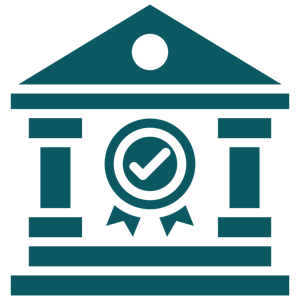Before delving further into specific programs that offer bachelor's degrees in public health or the career paths available to students who pursue this degree, it's important to consider the pros and cons of pursuing a public health major. Like any academic pursuit, there are advantages and disadvantages to be aware of before making this commitment.
Pros: Tell Me the Benefits
Big picture, the most significant pro of studying public health is the opportunity to make a positive impact on the health and well-being of communities. Communities can be geographic, like a neighborhood or county, or they can be based on a common health characteristic or need, like parents of children who have a certain health issue or teenage users of Juuls and e-cigarettes.
Public health professionals have the chance to work on issues related to health needs of communities with a focus on disease prevention, health promotion, and health policy development, all of which can lead to meaningful changes in society. Additionally, public health offers a diverse range of career paths, allowing for specialization in areas such as epidemiology, health education, biostatistics, environmental health, and more. There are also less common areas of public health that could be excellent career options, such as population health, health economics, or public policy. Getting a BPH or BSPH is a great first step either to lay the groundwork for pursuing an MPH or to jump directly into a career in public health.
Another advantage of pursuing a public health major is the potential for job stability and growth. The field of public health is expanding rapidly, with a growing demand for professionals in both the public and private sectors: expected job growth for health education specialists, healthcare management consultants and medical services managers are all higher than the national average rates of job growth4,5,6.
Causes for this demand for public health professionals is likely driven by a variety of factors - everything from an increasing awareness of the importance of preventative health measures following COVID-19 as well as the heightened need for effective public health policies and clear health messaging.
Cons: Tell Me the Downsides
Especially in light of these pros, it is essential to consider the cons of pursuing an undergraduate degree in public health as well. One of the challenges of pursuing a public health major is the breadth and depth of the coursework. Public health encompasses a wide range of disciplines, including biology, social sciences, statistics, and health policy, which can be overwhelming for some students. Some would be better suited to pursue another major and take electives in public health.
For example, someone interested primarily in biostatistics might be equally suited by pursuing a math major and then sampling general public health courses for their electives, or someone who wants to work in public health policy might be suited by majoring in English or Political Science with public health electives to supplement their courses.
That con is related to being a student, but there are other things to consider following the completion of any kind of public health degree program. Given the interdisciplinary nature of the field, public health professionals often need to collaborate with experts from various backgrounds, which can present communication and coordination challenges. That being said, there are plenty of public health jobs where your coworkers would primarily be other public health professionals.
Finally, the field of public health can be emotionally demanding. Public health professionals often face complex and urgent health issues, such as disease outbreaks, which require quick thinking and effective decision-making. Working on issues like health disparities can be challenging as the issues are so entrenched societally that it can be hard to maintain hope and a positive attitude. Dealing with these types of challenges can be stressful and emotionally draining.





